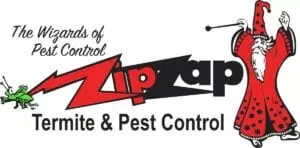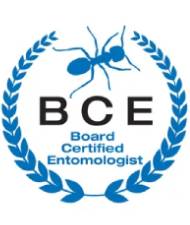How Long Does Pest Control Last?

If you’ve ever shelled out cash for a pest control treatment only to spot a cockroach or ant scuttling across your kitchen a few weeks later, you’re probably wondering, “How long does pest control last, anyway?” I’ve been there, staring at a spider in my bathroom, thinking, “Didn’t I just pay to get rid of you?” The truth is, pest control isn’t a one-and-done magic trick—it’s a process. Let’s break down what to expect from a professional pest control treatment, why those treatments don’t last forever, and why hiring pros is a smarter move than grabbing a can of bug spray from the hardware store.
What to Expect from a Pest Control Treatment
When you hire a professional pest control company, you’re not just paying for someone to spray some chemicals and leave. A good treatment is a carefully planned attack on pests, tailored to your home and the critters causing trouble. Here’s what typically happens:
- Inspection: A technician will check out your home to figure out what pests you’re dealing with, where they’re hiding, and how they’re getting in. This could mean looking for ant trails, rodent droppings, or termite damage.
- Treatment Plan: Based on what they find, they’ll use a mix of methods—sprays, baits, traps, or even heat treatments—to tackle the problem. They’ll target hot spots like kitchens, bathrooms, or entry points like cracks and crevices.
- Follow-Up: Most pest issues need more than one visit. Depending on the pest (like stubborn roaches or sneaky bed bugs), pros might come back every few weeks to make sure the treatment is working and to hit any new pests that pop up.
But here’s the kicker: pest control isn’t a “set it and forget it” deal. Even the best treatments don’t last forever, and there’s no such thing as a one-time fix. Pests are persistent—think ants marching back after a rain or mice sneaking in during winter. That’s why professionals treat pest control as an ongoing process, with regular check-ins to keep your home pest-free.
Why Pest Control Products Don’t Last Forever
You might be wondering, “If I paid good money, why are the pests back so soon?” The answer lies in the products used and how they’re designed. Pest control chemicals—whether sprays, baits, or dusts—are regulated by the EPA and labeled with specific instructions about how long they stay effective. This is called their “residual effect,” and it varies depending on the product and the environment.
- Product Breakdown: Most pest control products are designed to break down over time, and for good reason. If they stuck around forever, they could harm the environment, your pets, or even you. For example, a typical indoor spray might stay active for 30-90 days before it starts to degrade due to sunlight, moisture, or cleaning. Outdoor treatments often break down faster because of rain, wind, or heat.
- Pest Behavior: Even the best products can’t stop new pests from moving in. Ants can find a new entry point, or fleas can hitch a ride on your dog. The product might still be working, but new invaders keep the problem alive.
- Label Limits: Pesticide labels are strict about how much can be applied and how often. Pros follow these rules to keep treatments safe and effective, but it means they can’t just douse your home in chemicals and call it a day. The goal is to balance pest control with safety, which is why treatments need refreshing.
So, if you’re seeing pests a month or two after a treatment, it doesn’t mean the service failed—it’s likely the product doing what it’s supposed to do: breaking down to protect your home and the environment.
Why DIY Pest Control Falls Short
I get it—when you see bugs, it’s tempting to grab a can of spray or some traps and go to war yourself. Lots of people have tried it, thinking “I’d save a buck”, only to end up with a half-empty can and a house still crawling with ants. Here’s why DIY pest control often isn’t worth it:
- Limited Products: Store-bought sprays and baits use generic products that are less than what professionals have access to. They might kill a few bugs on contact, but they rarely have the lasting power to tackle an infestation.
- Missed Spots: Pests are sneaky, hiding in places you’d never think to look, like inside walls or under floorboards. Professionals know where to find and treat these spots, while DIYers often just hit the obvious areas.
- No Plan: Pest control isn’t just about killing bugs; it’s about preventing them. Pros create a customized plan with follow-ups, sealing entry points, and advice on keeping pests out. DIY methods are usually a one-off shot that doesn’t address the root problem.
- Costly Mistakes: Using too much product, applying it wrong, or choosing the wrong treatment can make things worse. We had a customer who overdid it with a flea bomb and ended up airing out their house for days, still with fleas! Plus, you might spend more on multiple DIY products than you would on a professional service.
Why Professional Pest Control Is the Better Value
Hiring a professional pest control company isn’t just about getting rid of pests today—it’s about keeping them gone for the long haul. Here’s why it’s worth the investment:
- Expertise: Pros are trained to understand pest behavior, identify entry points, and choose the right products for the job. They know how to handle everything from ants to termites without guessing.
- Professional Tools: Professionals use commercial-grade products that are more effective and longer-lasting than anything you’ll find at the store. They also know how to apply them safely and efficiently.
- Ongoing Protection: Most companies offer service plans with regular visits—quarterly, bimonthly, or monthly—to catch problems early and keep treatments fresh. This prevents infestations from spiraling out of control.
- Peace of Mind: Knowing your home is protected by experts is priceless. You don’t have to play detective or spend weekends spraying and scrubbing. Additionally, many companies offer guarantees, provided you are on a service plan. So if pests come back between visits, they’ll handle it at no extra cost.
Words From a Customer
“When I switched to a professional service, it was like night and day. No more guessing games or repeat trips to the store. They inspected my home, set up a plan, and checked in regularly. My pest problem went from a constant headache to a distant memory.”
Tips to Make Your Pest Control Last Longer
While pest control isn’t a one-time fix, you can help stretch its effectiveness:
- Follow the Pro’s Advice: If they tell you to seal cracks, clean up food spills, or trim bushes away from your house, do it. These steps make it harder for pests to come back.
- Keep It Clean: Vacuum regularly, take out the trash, and store food in sealed containers to avoid attracting pests.
- Stick to the Schedule: If your pest control plan includes regular visits, don’t skip them. Consistent treatments catch new pests before they become a problem.
- Talk to Your Tech: If you see pests between visits, let your technician know. They can adjust the treatment or check for new issues.
The Bottom Line: Pest Control Is a Partnership
So, how long does pest control last? It depends on the pests, the products, and your environment, but most treatments stay effective for 30-90 days, with regular maintenance to keep pests at bay. It’s not a one-time cure—it’s a process that requires teamwork between you and your pest control pros. While DIY might seem cheaper, it often costs more in time, frustration, and repeat buys. Professional pest control offers better value with expert knowledge, stronger tools, and ongoing protection.
If you’re tired of battling pests and wondering why your treatment didn’t last, give a professional pest control company a call. They’ll help you get ahead of the problem—and keep it that way.

Jeffery Preece, BCE, PHE
Jeffery Preece is the owner and technical director of ZipZap Termite & Pest Control



